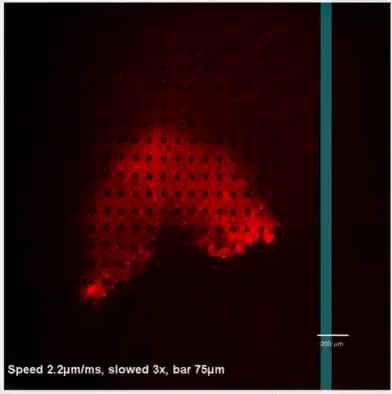Julie explains the discovery of Dr Gauvain on neuronal cells that can make blind person “see” again by the stimulation of retinal cells in the eyes with light.
Optogenetics is a novel biological method developed in the 2000s which can modulate cell behaviour through the action of a photosensible protein of microbial origin injected in the host. The technique is currently explored by Serge Picaud’s group at the Vision Institute in Paris as a strategy for vision restoration. Indeed, it is possible to induce neuronal responses in blind subjects by stimulating retinal cells in the eye with light [1]. The visual information delivered by the neurons can be then transmitted to the brain and make the visually impaired “see” again.
Recent research led by Grégory Gauvain investigated the safety and the in-vitro functionality of an optogenetics protocol in non-human primates [2]. In particular, they found out that neuronal cells in the targeted retina were able to discriminate between different shapes, resulting in the visual acuity of 20/249, above the level of legal blindness (20/400).
This work supported and has led to an ongoing clinical trial on patients affected by Retinitis Pigmentosa, a genetic disorder characterized by the progressive degeneration of the retina [3].
Learn more here !

© https://twitter.com/GGauvain2/status/1355141221086339080
A primate retina is here displayed on an electrophysiological recording device made from multiple electrodes (black dots). When a moving bar is presented to the retina, the retinal cells are responding to the stimulation as the electrodes “lighten up”!
[1] Bi, A. et al. Ectopic expression of a microbial-type rhodopsin restores visual responses in mice with photoreceptor degeneration. Neuron 50, 23–33 (2006).
[2] Gauvain, G., Akolkar, H., Chaffiol, A. et al. Optogenetic therapy: high spatiotemporal resolution and pattern discrimination compatible with vision restoration in non-human primates. Commun Biol 4, 125 (2021).
[3] Dose-escalation Study to Evaluate the Safety and Tolerability of GS030 in Subjects With Retinitis Pigmentosa – Full Text View – ClinicalTrials.gov. https://clinicaltrials.gov/ct2/show/NCT03326336 (2017).

